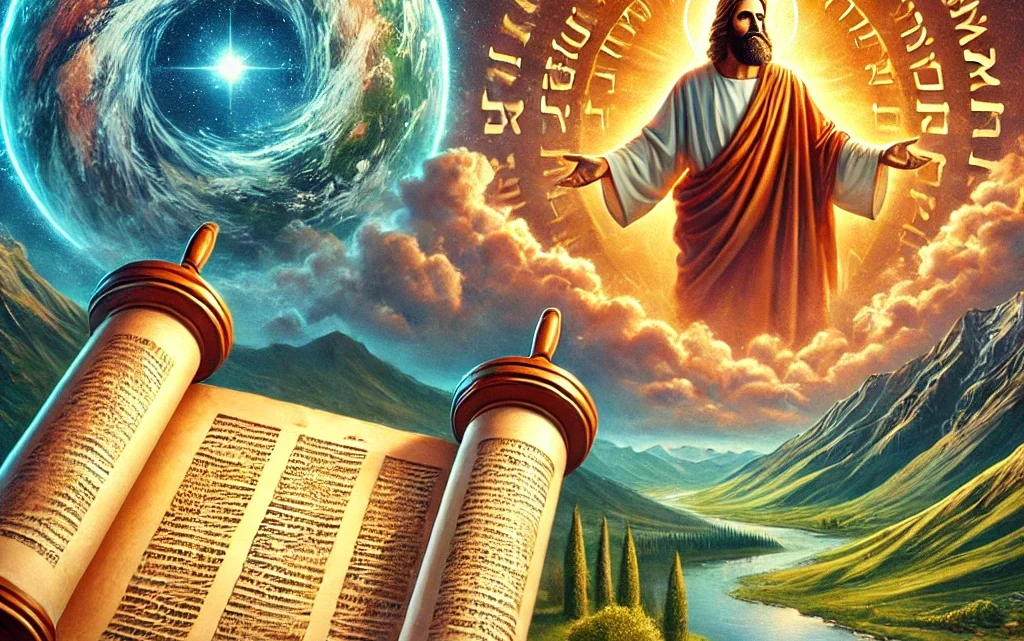I Think It’s Funny

It’s often amusing—and a bit bewildering—to hear Christian ministers claim that the Old Testament has been “done away with” because Yeshua (Jesus) fulfilled it. What makes this notion ironic is that these very ministers rely on scriptures from the Old Testament (Torah, Prophets, and Writings) for their own teachings, without realizing the contradiction in their statement. Let’s dig deeper into this topic and see what the scriptures actually say.
The Torah is Eternal
The claim that the Torah is no longer relevant contradicts several clear statements in scripture. Let’s start with Yeshua’s own words:
1. Matthew 5:17-19
“Do not think that I have come to abolish the Law or the Prophets; I have not come to abolish them but to fulfill them. For truly, I say to you, until heaven and earth pass away, not an iota, not a dot, will pass from the Law until all is accomplished. Therefore whoever relaxes one of the least of these commandments and teaches others to do the same will be called least in the kingdom of heaven, but whoever does them and teaches them will be called great in the kingdom of heaven.”
Here, Yeshua makes it abundantly clear: the Torah remains intact until heaven and earth pass away. Last time I checked, both are still here.
2. Psalm 119:89
“Forever, O Yehovah, Your word is settled in heaven.”
If the Torah is settled in heaven forever, how can it be done away with on earth? This verse confirms the eternal nature of Yehovah’s Word.
3. Isaiah 40:8
“The grass withers, the flower fades, but the word of our God will stand forever.”
This verse reinforces that Yehovah’s Word—including the Torah—does not fade away or become obsolete.
Yeshua Taught from the Torah
During Yeshua’s ministry, there was no New Testament. The scriptures He quoted, taught, and lived by were exclusively the Torah, Prophets, and Writings (what we call the Old Testament). Here are a few examples:
1. The Greatest Commandments
In Matthew 22:37-40, Yeshua summarizes the Torah when asked about the greatest commandment:
“‘You shall love the Lord your God with all your heart and with all your soul and with all your mind.’ This is the great and first commandment. And a second is like it: ‘You shall love your neighbor as yourself.’ On these two commandments depend all the Law and the Prophets.”
Both commandments are direct quotes from the Torah:
• Love Yehovah: Deuteronomy 6:5
• Love your neighbor: Leviticus 19:18
Yeshua didn’t create new commandments—He simply pointed people back to the Torah.
2. The Temptation in the Wilderness
When Yeshua was tempted by Satan in the wilderness (Matthew 4:1-11), every response He gave came from the Torah:
• “Man shall not live by bread alone” (Deuteronomy 8:3)
• “You shall not put the Lord your God to the test” (Deuteronomy 6:16)
• “You shall worship the Lord your God and Him only shall you serve” (Deuteronomy 6:13)
3. The Sermon on the Mount
The Beatitudes and teachings in Matthew 5-7 are rooted in Torah principles. For instance:
• “Blessed are the meek, for they shall inherit the earth” (Psalm 37:11)
• “Do unto others as you would have them do unto you” (Leviticus 19:18)
The Old Testament as Foundation
The argument that the Torah is obsolete ignores that the New Testament builds upon the foundation of the Old. Paul, often misquoted to support the idea that the Law is abolished, actually affirmed its importance:
1. Romans 3:31
“Do we then overthrow the law by this faith? By no means! On the contrary, we uphold the law.”
2. 2 Timothy 3:16-17
“All Scripture is breathed out by God and profitable for teaching, for reproof, for correction, and for training in righteousness, that the man of God may be complete, equipped for every good work.”
At the time Paul wrote this, “all scripture” referred to the Old Testament—because the New Testament didn’t exist yet!
3. Acts 17:11
The Bereans were commended for verifying Paul’s teachings by examining the Scriptures. What were they examining? The Torah, Prophets, and Writings.
Stories of Continuity
1. Yeshua and the Two on the Road to Emmaus (Luke 24:27)
After His resurrection, Yeshua walked with two disciples and explained how the Torah and Prophets pointed to Him:
“And beginning with Moses and all the Prophets, He interpreted to them in all the Scriptures the things concerning Himself.”
Notice Yeshua didn’t use a new book or new doctrine—He showed how the Torah and Prophets testified of Him.
2. The Ethiopian Eunuch (Acts 8:26-40)
Philip encounters a man reading Isaiah 53 and explains how it points to Yeshua. Again, the Torah and Prophets are used to proclaim the Messiah.
Heaven and Earth Still Remain
The Torah has not been abolished, nor could it be. The covenant Yehovah made with His people through the Torah is eternal. Jeremiah 31:31-34 speaks of the New Covenant, which writes the Torah on our hearts—not replaces it.
When ministers claim the Old Testament is done away with, they undermine the very foundation of the faith they profess. Yeshua did not come to abolish the Torah; He came to live it, teach it, and fulfill its prophetic aspects—showing us how to walk in obedience and love.
So, the next time someone says the Torah is irrelevant, just look at the heavens and earth around you. As long as they remain, so does Yehovah’s Torah

